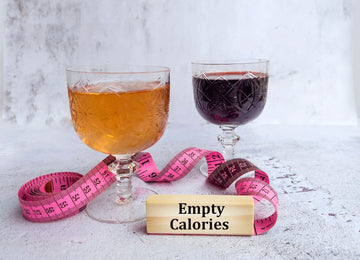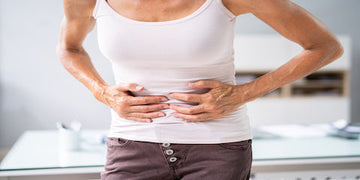by Anthony Benjamin on Oct 12, 2022

The Importance of Your Liquid Diet
Weight-loss surgery can give you a new start on a healthy lifestyle. Following the preoperative and postoperative diet guidelines will help ensure your success. A liquid diet is one of the first steps for helping you heal and recover after surgery.
The Purpose of a Liquid Diet
 Your
diet plan will go through several stages after weight-loss surgery. Your doctor or dietitian
will let you know how long each stage lasts, and what you can eat and drink. No matter the
stage, portion control is emphasized, and you will be encouraged to take small bites, chew
thoroughly, and swallow slowly.
Your
diet plan will go through several stages after weight-loss surgery. Your doctor or dietitian
will let you know how long each stage lasts, and what you can eat and drink. No matter the
stage, portion control is emphasized, and you will be encouraged to take small bites, chew
thoroughly, and swallow slowly.
After surgery, a liquid diet can help your stomach heal without being stretched by food. It also is designed to:
- Get you used to eating tiny amounts of food that your smaller stomach can easily digest.
- Help you to lose weight and avoid gaining weight.
- Help you to avoid side effects and complications from your surgery.
Remember that bariatric surgery is a tool on your weight-loss journey (see Weight Loss Surgery is Not a Miracle Cure for Obesity. The change to your diet may be one of the most challenging adjustments during your transition to a new lifestyle. Your new dietary habits will help you continue to lose weight and prepare you for a lifetime of healthier eating.
After surgery, your much smaller stomach holds about two tablespoons of food and produces less stomach acid, creating a decreased tolerance for harder-to-digest foods like fried foods and dairy.
After surgery, your doctor will recommend what types of food you can eat and how much. Most diets include lean, protein-rich foods that are low in fats and sugar. As you learn what you can and can’t eat, it’s best to avoid altogether food that causes an upset stomach, diarrhea, and other digestive issues.
Dumping syndrome occurs when foods and liquids enter the small intestine quickly and in larger amounts than usual, causing dizziness, sweating, nausea, vomiting, and diarrhea. Eating and drinking slowly can help avoid this condition. When you drink to quickly, the liquid dilutes the stomach acid and flushes food through your system too fast. That is why you should refrain from drinking 30 minutes before eating, while eating, and 30 minutes after eating.
After your stomach heals and you have progressed to your new healthy diet, it’s essential to get adequate nutrition while keeping your weight loss goals on track. Your doctor may recommend:
- Eating and drinking slowly
- Keeping meals small
- Drinking liquids in between meals
- Chewing food thoroughly
- Eating high-protein foods
- Avoiding foods high in fat and sugar
- Taking vitamin and mineral supplements
What Does a Liquid Diet Consist Of?
 Immediately
after surgery, you will be on a gentle, clear liquid diet that includes water, broth, some
diluted juices, and sugar-free gelatin.
Immediately
after surgery, you will be on a gentle, clear liquid diet that includes water, broth, some
diluted juices, and sugar-free gelatin.
After your doctor confirms that your stomach is handling clear liquids, you will transition to a full liquid diet. Some foods you can expect to eat on a liquid diet are:
- Skim milk
- Thin broth or soup
- Unsweetened juice
- Decaffeinated coffee or tea (caffeinated beverages can cause dehydration)
- Sugar-free gelatin or popsicles
- Sugar-free pudding
- Fat-free or light yogurt
You will eat about one to two ounces of food at a time and no more frequently than every 20 minutes while awake. Your doctor may also have you drink two high protein drinks a day. Typically, patients are on a liquid diet for the first week after surgery.
Hydration is essential no matter what diet stage you are following. Be sure to drink 64 ounces of fluid a day and follow the 30/30/30 rule. This rule means you stop drinking 30 minutes before eating, refrain from drinking during eating, chew food 30 times before swallowing, and wait to drink until 30 minutes after eating. It’s best to try to drink four ounces every 30 minutes between your meals. See Tips for a Liquid Diet for more information.
Eating and drinking slowly, as well as portion control, is vital to avoid dumping syndrome. This condition occurs when beverages and food enter the small intestine in too-large amounts or too quickly. Drinking fluids with your meals may cause dumping syndrome because it helps food move through your system quicker. The symptoms of this syndrome can include some or all the following:
- Sweating
- Nausea
- Vomiting
- Dizziness
- Diarrhea
To avoid dumping syndrome, eat slowly (take at least 30 minutes to eat) and wait around 30 minutes before drinking liquids. Always sip liquids slowly.
Transitioning Back to Regular Food
 Over the next few weeks,
you will advance from a clear liquid diet to a pureed diet and then a soft diet. Stage four,
stabilization, reintroduces solid foods and usually occurs about two months after surgery.
Over the next few weeks,
you will advance from a clear liquid diet to a pureed diet and then a soft diet. Stage four,
stabilization, reintroduces solid foods and usually occurs about two months after surgery.
Long-Term Dietary Changes
For the first 12 to 18 months after surgery, your body will undergo many changes. You may find that you notice a change in taste, smell, or tolerance of food. This is a common phenomenon and varies from person to person. The exact cause of these changes is not clear, but researchers suspect that fluctuating gut hormones and their effect on the nervous system may play a role. They key is to keep trying new foods and different preparations. Be sure to chew thoroughly before swallowing, and if your body doesn’t tolerate specific food in your diet, try it again after six months.
What Vitamin and Mineral Supplement Should I Take?
At ProCare Health, we have created vitamin and mineral supplements specifically for people who have had bariatric surgery. We even offer a free sample to help you get started! If you need additional help or have any questions about our bariatric vitamins or supplements, please contact us today with questions or to place an order. 877-822-5808

Can You Drink Caffeine After Bariatric Surgery?

Can You Drink Alcohol After Bariatric Surgery?

How To Find Support Post-Bariatric Surgery

